Encouraging Others
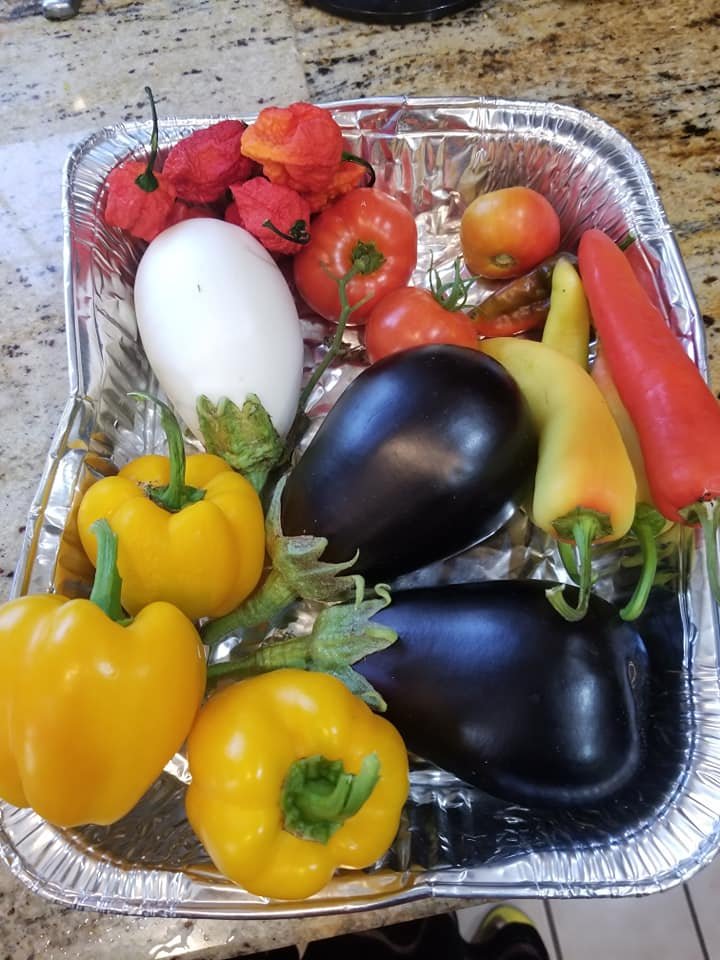
The Reward
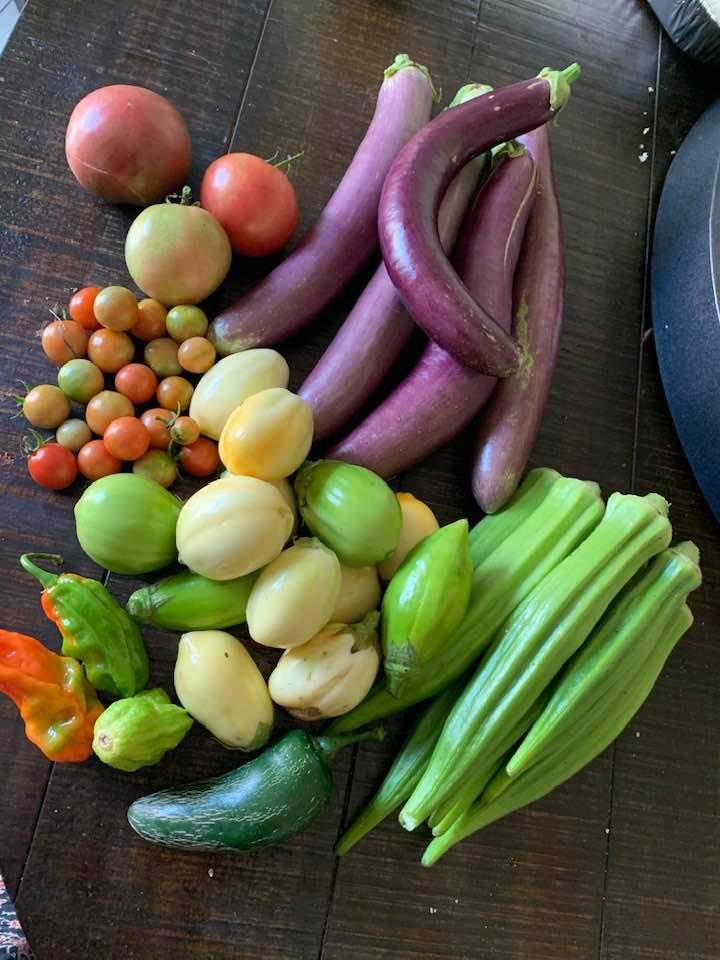
The Harvest
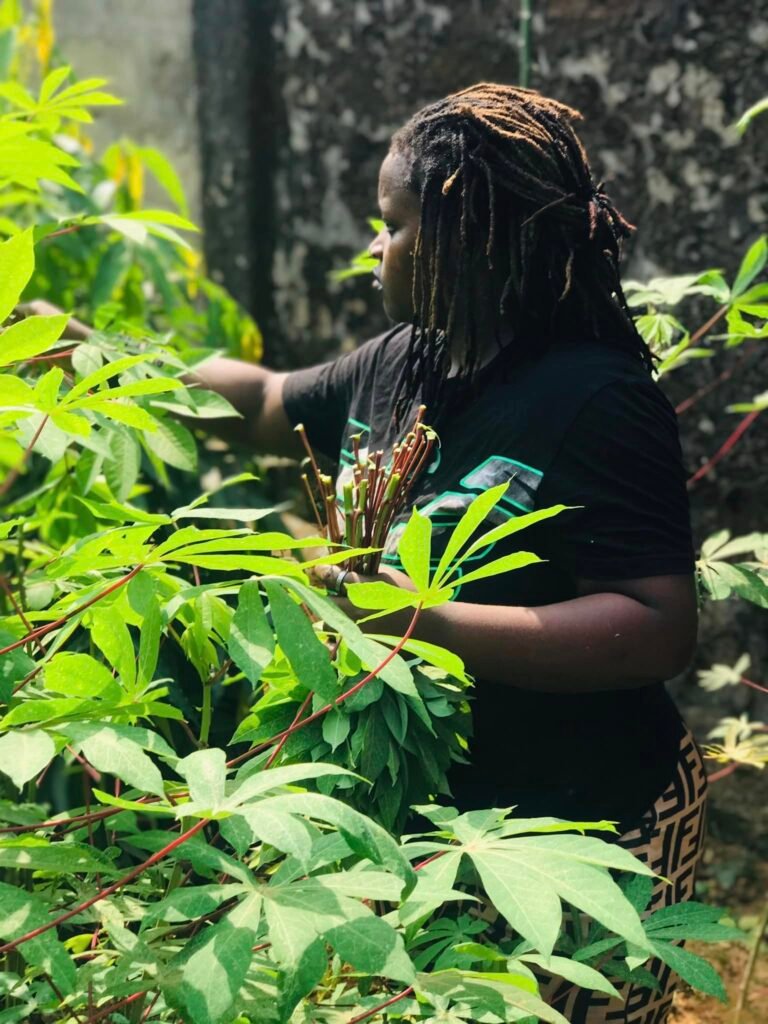
Cassava Leaf
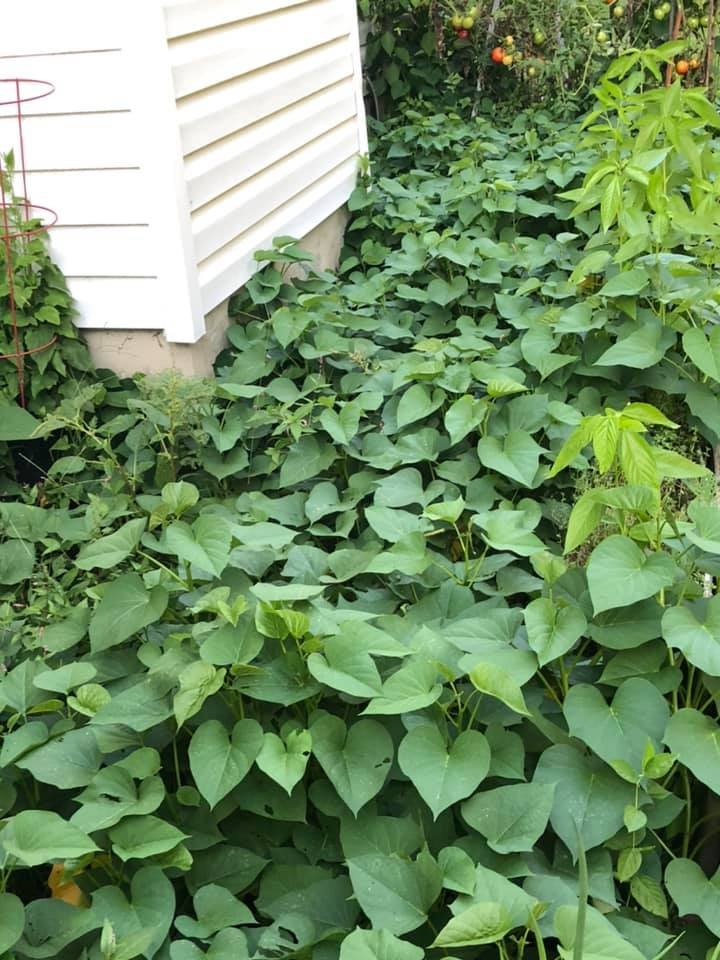
Potato Leaf
In the begining was the word in Freetown, Sierra Leone
Welcome to our backyard gardening journey, a story deeply rooted in family tradition, cultural heritage, and a passion for sustainable living. Our tale begins in the vibrant city of Freetown, Sierra Leone, where the love for gardening was instilled in me from a young age.
In my childhood home, gardening wasn’t just a hobby; it was a way of life. My father tended to the back garden, nurturing a variety of edible leafy greens like Borlorgee, Sawa-Sawa, and Krain Krain, while my mother adorned the front yard with colorful roses. Despite my father’s prestigious job, he found solace and joy in getting his hands dirty after a long day’s work.
Water, drawn from a nearby well, was plentiful, ensuring our plants thrived in Freetown’s arid climate. With the help of natural fertilizers from our chickens and occasional sheep or goat, our garden flourished without the need for harmful chemicals.
The Saturday market became my entrepreneurial playground as I eagerly sold handfuls of fresh Borlorgee, a cherished delicacy, to eager customers. In a city where backyard gardens were rare, our homegrown produce stood out, symbolizing self-sufficiency and resilience.
My journey with Borlorgee continued as I relocated to the UK and later the USA, where I nurtured the plant in my apartment, balcony, and now, in the fertile soil of South Jersey, known as the Garden State. Inspired by my upbringing and fueled by a desire to utilize the land I now owned, I embarked on a journey of subsistence farming, reaping the rewards of my labor and sharing the abundance with others.
With the rise of social media, I leveraged platforms like Facebook to form communities of backyard gardeners, sharing tips, tricks, and inspiring others to embark on their own gardening adventures. The success of these groups led me to launch a dedicated website, where I aim to extend my passion for gardening to a global audience, empowering individuals to reconnect with nature, grow their own food, and reap the rewards of sustainable living.
While I may lack formal education in agriculture or gardening, my decades of hands-on experience and divine guidance have taught me invaluable lessons. As I continue to learn and grow, I invite you to join me on this journey, where the sweat of our brow becomes the bread on our table, and the effort we put into gardening yields bountiful rewards. Together, let’s cultivate a greener, healthier world, one backyard at a time.
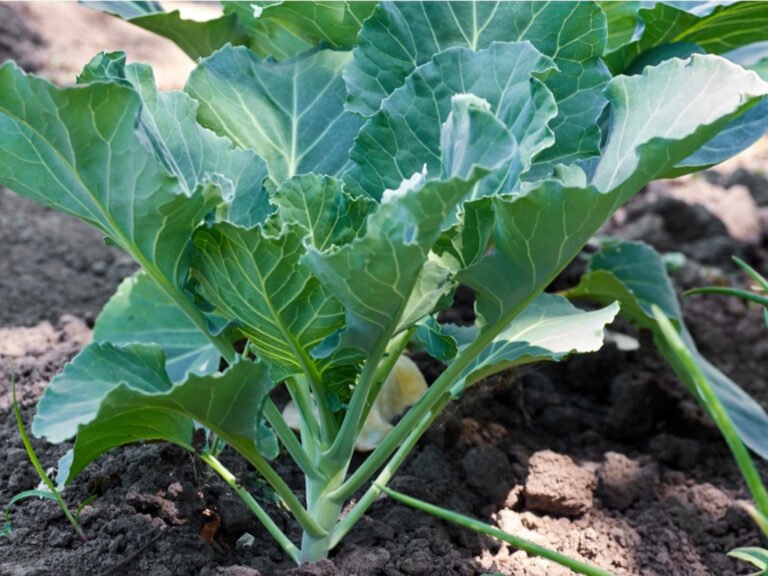
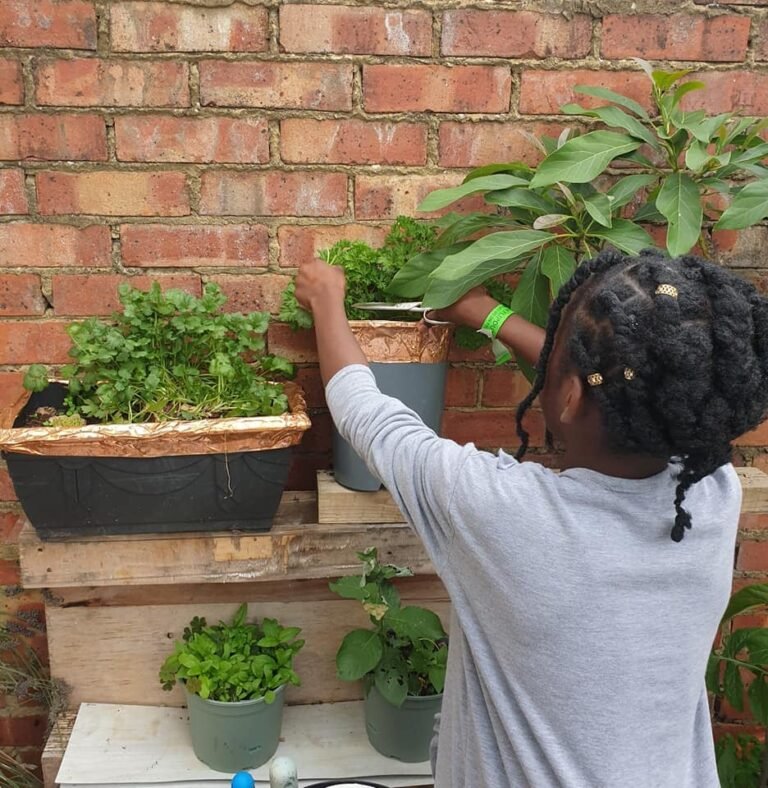
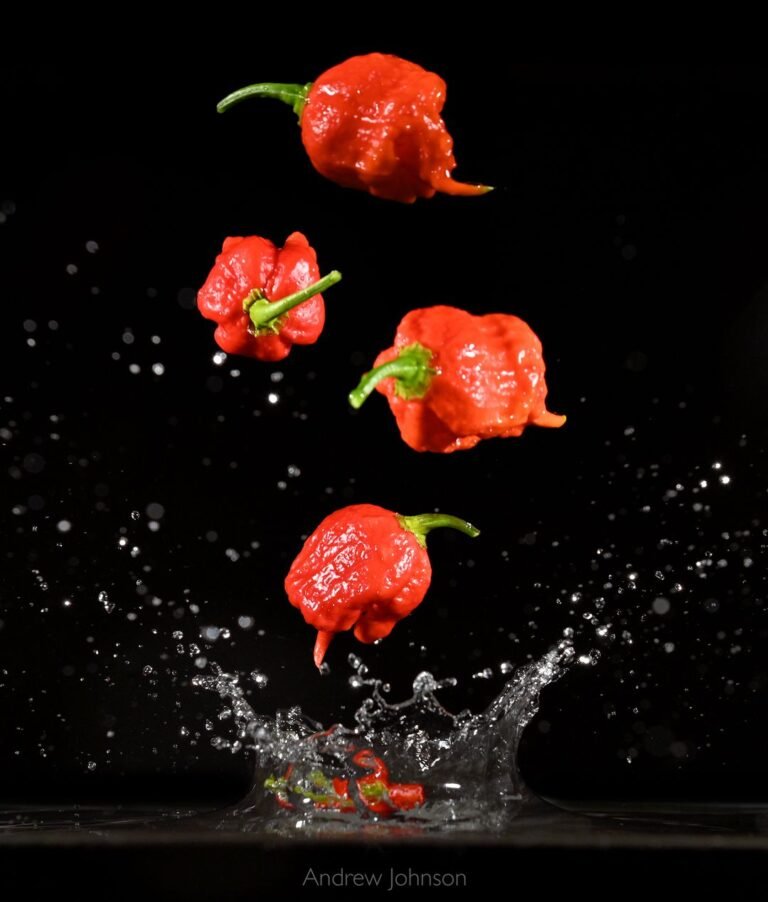
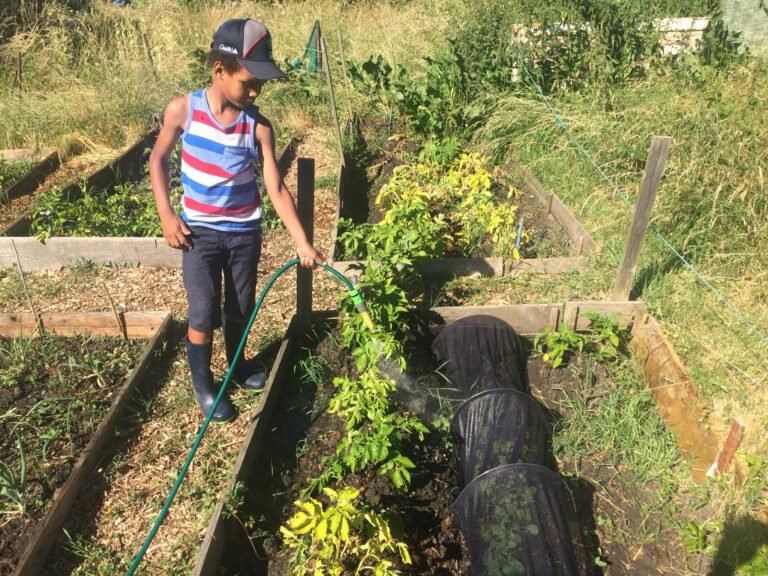
The Health Benefits and Passion of a Backa Yard Garden
The passion for back yard gardening extends far beyond the simple act of tending to plants—it’s a lifestyle choice that offers a plethora of health benefits, both physical and mental. Cultivating a back yard garden not only provides access to fresh, homegrown produce but also serves as a source of physical activity, stress relief, and connection with nature.
First and foremost, gardening is a form of moderate exercise that engages various muscle groups and promotes flexibility and dexterity. Whether it’s digging, planting, weeding, or harvesting, these activities contribute to increased physical activity levels, helping to maintain a healthy weight, improve cardiovascular health, and reduce the risk of chronic diseases such as obesity, diabetes, and heart disease.
Additionally, spending time in the garden has been shown to have positive effects on mental well-being. The act of gardening promotes mindfulness and relaxation, allowing individuals to escape the stresses of daily life and focus on the present moment. This connection with nature has been linked to reduced levels of anxiety, depression, and mood disorders, as well as improved cognitive function and overall mental clarity.
Furthermore, growing your own food in a back yard garden promotes healthier eating habits and nutritional intake. Homegrown produce is typically fresher, more flavorful, and higher in nutrients compared to store-bought alternatives, as it is harvested at peak ripeness and consumed soon after picking. By incorporating a variety of fruits, vegetables, and herbs into their diet, gardeners can ensure a diverse and balanced intake of vitamins, minerals, and antioxidants, supporting overall health and immune function.
Moreover, gardening fosters a sense of connection and community, as individuals share knowledge, resources, and produce with neighbors, friends, and family members. This sense of belonging and camaraderie can enhance social support networks, reduce feelings of isolation, and promote mental resilience and well-being.
In conclusion, the passion for back yard gardening goes beyond mere hobbyism—it’s a transformative lifestyle choice that promotes holistic health and wellness. By immersing oneself in the rhythms of nature, cultivating the earth, and nourishing the body and soul with homegrown goodness, gardeners can reap the countless benefits of this fulfilling and enriching pursuit.
Tips: That’s a fantastic tip for speeding up the germination process of seeds. By enclosing them in a damp paper towel inside a zip lock bag, you create a moist and controlled environment that encourages the seeds to sprout more quickly. This method is particularly useful for seeds that have hard outer shells or that naturally have a longer germination period. Once the seeds have sprouted, you can carefully transfer them to pots or the garden soil, where they can continue to grow and flourish. And you’re absolutely right—gardening requires tender loving care (TLC) and patience, but the rewards of watching your seeds transform into thriving plants are well worth the effort. Happy gardening!
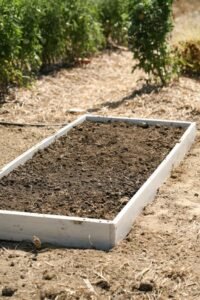
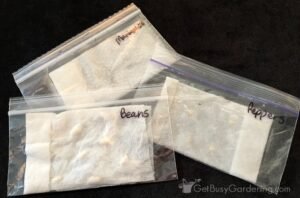
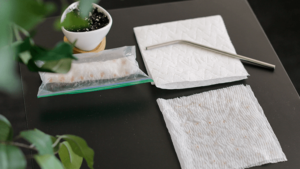
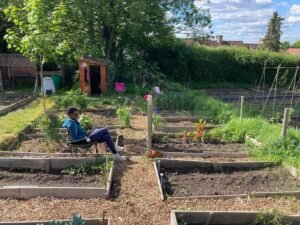
Tips: Raised beds offer numerous benefits for gardening, and using cardboard and leaves at the base is a smart technique to ensure the success of your raised bed garden. The cardboard serves as a barrier against weeds, preventing them from sprouting up through the soil while also providing a natural biodegradable material that enriches the soil as it decomposes. Additionally, layering leaves, especially if they are mulched, adds organic matter to the soil, improving its texture, fertility, and water retention capacity.
Moreover, as you rightly pointed out, the materials in a raised bed will settle over time, causing the soil level to decrease. Starting with a generous amount of cardboard and leaves helps compensate for this settling, ensuring that your raised bed remains at an optimal height for planting. By incorporating these organic materials into the base of your raised bed, you create a healthy and fertile growing environment for your plants, setting the stage for a successful and bountiful harvest. So, remember to prioritize cardboard and leaves when starting your raised bed garden—they’re essential ingredients for long-term gardening success!
